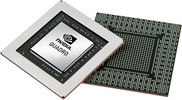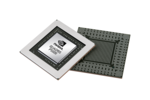NVIDIA Quadro P620 vs NVIDIA Quadro P5000 vs NVIDIA Quadro P4200
NVIDIA Quadro P620
► remove from comparison
The Nvidia Quadro P620 is an entry-level mobile workstation graphics card for laptops. It uses a GP107 Pascal chip with a 128 Bit memory bus and therefore similar to the old Quadro P1000 with reduced clock speeds. Compared to consumer cards, there is no similar specified card currently and therefore the P620 slots in between the GeForce MX250 and GTX 1050. With a theoretical peak of 1.5 TFLOPS, the performance is clearly ahead of the old P600 with 1.2 TFLOPS.
The Quadro GPUs offer certified drivers, which are optimized for stability and performance in professional applications (CAD, DCC, medical, prospection, and visualizing applications). The performance in these areas is therefore much better compared to corresponding consumer GPUs.
NVIDIA Quadro P5000
► remove from comparison
The Nvidia Quadro P5000 is a mobile high-end workstation graphics card for notebooks. Similar to the consumer GeForce GTX 1070 (Laptop), it is based on a slimmed-down GP104 chip with 2048 shaders. The graphics card is designed for the Kaby Lake generation and is the successor to the Quadro M5000M (Maxwell). However, the P5000 is equipped with 16 GB GDDR5 video memory (at a lower bandwidth), while GTX 1070 is limited to 8 GB. The clock rates range between 1164 MHz (base) to 1506 MHz (typical Boost) and up to 1657 MHz (max.).
The Quadro GPUs offer certified drivers, which are optimized for stability and performance in professional applications (CAD, DCC, medical, prospection, and visualizing applications). The performance in these areas is therefore much better compared to corresponding consumer GPUs.
Performance
The theoretical performance should be on par with the GTX 1070 (if the clocks did not take a massive hit), so the GPU should be significantly faster than the previous M5000M. Even the old M5500M could be beaten.
Power Consumption
The power consumption of the Quadro P5000 is similar to the old Quadro M5000M at 100 Watts TGP (max power consumption incl. memory) resp. 73.4 W TDP according to Nvidia. The card is therefore suited for large 17-inch notebooks.
NVIDIA Quadro P4200
► remove from comparison
The Nvidia Quadro P4200 is a mobile high-end workstation graphics card for notebooks. It is based on the GP104 chip (like the consumer GeForce GTX 1070 or 1080 for laptops) and features 2304 shader cores. The clock rate is not disclosed but the theoretical SP performance is rated at 8.9 TFLOPs (for the fast Max-P version) and therefore faster than the old Quadro P5000 but below the Quadro P5200 (see table below). The P4200 is equipped with 8 GB GDDR5 which leads to 224 GB7s peak bandwidth due to the 256 Bit memory bus. There are two variants available, a Max-P performance version and a Max-Q version tuned for efficiency (with lower clock speeds).
The Quadro GPUs offer certified drivers, which are optimized for stability and performance in professional applications (CAD, DCC, medical, prospection, and visualizing applications). The performance in these areas is therefore much better compared to corresponding consumer GPUs.
Power Consumption
The power consumption of the Quadro P4200 is rated at 115 Watt TGP (max power consumption incl. memory) and therefore 15 Watt more than the Quadro P5000. The card is therefore best suited for large 17-inch notebooks.
| NVIDIA Quadro P620 | NVIDIA Quadro P5000 | NVIDIA Quadro P4200 | ||||||||||||||||||||||||||||||||||||||||||||||||||||||||||||||||||||||||||||||||||||||||||||||||||||||||||||||||||||||
| Quadro P Series |
|
|
| |||||||||||||||||||||||||||||||||||||||||||||||||||||||||||||||||||||||||||||||||||||||||||||||||||||||||||||||||||||
| Architecture | Pascal | Pascal | Pascal | |||||||||||||||||||||||||||||||||||||||||||||||||||||||||||||||||||||||||||||||||||||||||||||||||||||||||||||||||||||
| Pipelines | 512 - unified | 2048 - unified | 2304 - unified | |||||||||||||||||||||||||||||||||||||||||||||||||||||||||||||||||||||||||||||||||||||||||||||||||||||||||||||||||||||
| Core Speed | 1177 - 1442 (Boost) MHz | 1164 - 1506 (Boost) MHz | 1215 - 1480 (Boost) MHz | |||||||||||||||||||||||||||||||||||||||||||||||||||||||||||||||||||||||||||||||||||||||||||||||||||||||||||||||||||||
| Memory Speed | 6000 MHz | 6006 MHz | 7132 MHz | |||||||||||||||||||||||||||||||||||||||||||||||||||||||||||||||||||||||||||||||||||||||||||||||||||||||||||||||||||||
| Memory Bus Width | 128 Bit | 256 Bit | 256 Bit | |||||||||||||||||||||||||||||||||||||||||||||||||||||||||||||||||||||||||||||||||||||||||||||||||||||||||||||||||||||
| Memory Type | GDDR5 | GDDR5 | GDDR5 | |||||||||||||||||||||||||||||||||||||||||||||||||||||||||||||||||||||||||||||||||||||||||||||||||||||||||||||||||||||
| Max. Amount of Memory | 4 GB | 16 GB | 8 GB | |||||||||||||||||||||||||||||||||||||||||||||||||||||||||||||||||||||||||||||||||||||||||||||||||||||||||||||||||||||
| Shared Memory | no | no | no | |||||||||||||||||||||||||||||||||||||||||||||||||||||||||||||||||||||||||||||||||||||||||||||||||||||||||||||||||||||
| API | DirectX 12_1, OpenGL 4.5 | DirectX 12_1, Shader 5.0, OpenGL 4.5 | DirectX 12_1, Shader 5.0, OpenGL 4.5 | |||||||||||||||||||||||||||||||||||||||||||||||||||||||||||||||||||||||||||||||||||||||||||||||||||||||||||||||||||||
| Power Consumption | 25 Watt | 100 Watt | 115 Watt | |||||||||||||||||||||||||||||||||||||||||||||||||||||||||||||||||||||||||||||||||||||||||||||||||||||||||||||||||||||
| technology | 14 nm | 16 nm | 16 nm | |||||||||||||||||||||||||||||||||||||||||||||||||||||||||||||||||||||||||||||||||||||||||||||||||||||||||||||||||||||
| Features | Vulkan, Multi Monitor | Optimus, PhysX, 3D Vision Pro, nView, Optimus | Optimus, PhysX, 3D Vision Pro, nView, Optimus | |||||||||||||||||||||||||||||||||||||||||||||||||||||||||||||||||||||||||||||||||||||||||||||||||||||||||||||||||||||
| Notebook Size | large | large | large | |||||||||||||||||||||||||||||||||||||||||||||||||||||||||||||||||||||||||||||||||||||||||||||||||||||||||||||||||||||
| Date of Announcement | 27.05.2019 | 11.01.2017 | 07.05.2018 | |||||||||||||||||||||||||||||||||||||||||||||||||||||||||||||||||||||||||||||||||||||||||||||||||||||||||||||||||||||
| Codename | N17E-Q5 | |||||||||||||||||||||||||||||||||||||||||||||||||||||||||||||||||||||||||||||||||||||||||||||||||||||||||||||||||||||||
| Link to Manufacturer Page | www.nvidia.com |
Benchmarks
3DM Vant. Perf. total + NVIDIA Quadro P620
specvp11 snx-01 + NVIDIA Quadro P5000
specvp12 sw-03 + NVIDIA Quadro P620
Cinebench R15 OpenGL 64 Bit + NVIDIA Quadro P620
GFXBench T-Rex HD Offscreen C24Z16 + NVIDIA Quadro P5000
Average Benchmarks NVIDIA Quadro P620 → 100% n=1
Average Benchmarks NVIDIA Quadro P5000 → 278% n=1
Average Benchmarks NVIDIA Quadro P4200 → 281% n=1
* Smaller numbers mean a higher performance
1 This benchmark is not used for the average calculation
Game Benchmarks
The following benchmarks stem from our benchmarks of review laptops. The performance depends on the used graphics memory, clock rate, processor, system settings, drivers, and operating systems. So the results don't have to be representative for all laptops with this GPU. For detailed information on the benchmark results, click on the fps number.

FIFA 20
2019
Borderlands 3
2019
F1 2019
2019
Metro Exodus
2019
Apex Legends
2019
F1 2018
2018
X-Plane 11.11
2018
Fortnite
2018
Destiny 2
2017
Rocket League
2017
Prey
2017
For Honor
2017
Titanfall 2
2016
Battlefield 1
2016
Overwatch
2016
Doom
2016
Rainbow Six Siege
2015
Dota 2 Reborn
2015
The Witcher 3
2015
Metro: Last Light
2013
BioShock Infinite
2013
Guild Wars 2
2012Average Gaming NVIDIA Quadro P620 → 100%
Average Gaming 30-70 fps → 100%
Average Gaming NVIDIA Quadro P5000 → 295%
Average Gaming 30-70 fps → 312%
| NVIDIA Quadro P620 | NVIDIA Quadro P5000 | NVIDIA Quadro P4200 | |||||||||||||||||||
|---|---|---|---|---|---|---|---|---|---|---|---|---|---|---|---|---|---|---|---|---|---|
| low | med. | high | ultra | QHD | 4K | low | med. | high | ultra | QHD | 4K | low | med. | high | ultra | QHD | 4K | ||||
| FIFA 20 | 166 | 117.8 | 112 | 92.4 | |||||||||||||||||
| Borderlands 3 | 75.8 | 29.7 | 19.3 | 14.5 | |||||||||||||||||
| F1 2019 | 102 | 46 | 39 | 26 | |||||||||||||||||
| Metro Exodus | 46.6 | 21.4 | 15.5 | 12.9 | |||||||||||||||||
| Apex Legends | 88.4 | 35.2 | 29.1 | 26 | |||||||||||||||||
| Shadow of the Tomb Raider | 70 | 16 | 14 | 12 | |||||||||||||||||
| F1 2018 | 106 | 55 | 42 | 25 | |||||||||||||||||
| X-Plane 11.11 | 104 | 71.3 | 63.9 | ||||||||||||||||||
| Final Fantasy XV Benchmark | 52 | 26 | 18 | ||||||||||||||||||
| Fortnite | 183.6 | 113.2 | 41.9 | 29.3 | |||||||||||||||||
| Destiny 2 | 100.5 | 48.6 | 37.6 | 30.1 | |||||||||||||||||
| Middle-earth: Shadow of War | 96 | 37 | 27 | 20 | |||||||||||||||||
| Rocket League | 248.9 | 153.5 | 96.5 | ||||||||||||||||||
| Prey | 144.7 | 74.8 | 56.7 | 125.2 | 47.8 | ||||||||||||||||
| Overwatch | 261.8 | 169 | 77 | ||||||||||||||||||
| Doom | 96.7 | 76.3 | 44.1 | ||||||||||||||||||
| Ashes of the Singularity | 50.6 | 29.2 | 25.4 | ||||||||||||||||||
| Rise of the Tomb Raider | 101.9 | 62.9 | 33.7 | 26.4 | 97.9 | 86 | 36 | ||||||||||||||
| Dota 2 Reborn | 156 | 139 | 90.2 | 82.8 | |||||||||||||||||
| The Witcher 3 | 96 | 55 | 32 | 17 | 97.5 | 53 | 36 | ||||||||||||||
| BioShock Infinite | 301.7 | 160.9 | 140 | 52.8 | 128 | ||||||||||||||||
| StarCraft II: Heart of the Swarm | 542 | 258.9 | 156.8 | 82.4 | |||||||||||||||||
| Guild Wars 2 | 149.9 | 73.1 | 28.4 | ||||||||||||||||||
| NVIDIA Quadro P620 | NVIDIA Quadro P5000 | NVIDIA Quadro P4200 | |||||||||||||||||||
| low | med. | high | ultra | QHD | 4K | low | med. | high | ultra | QHD | 4K | low | med. | high | ultra | QHD | 4K | < 30 fps < 60 fps < 120 fps ≥ 120 fps | 3 11 9 | 5 6 6 5 | 7 8 6 2 | 11 2 3 | | | < 30 fps < 60 fps < 120 fps ≥ 120 fps | | | 2 | 1 1 2 | | 3 | < 30 fps < 60 fps < 120 fps ≥ 120 fps | | | | | | |
For more games that might be playable and a list of all games and graphics cards visit our Gaming List
























